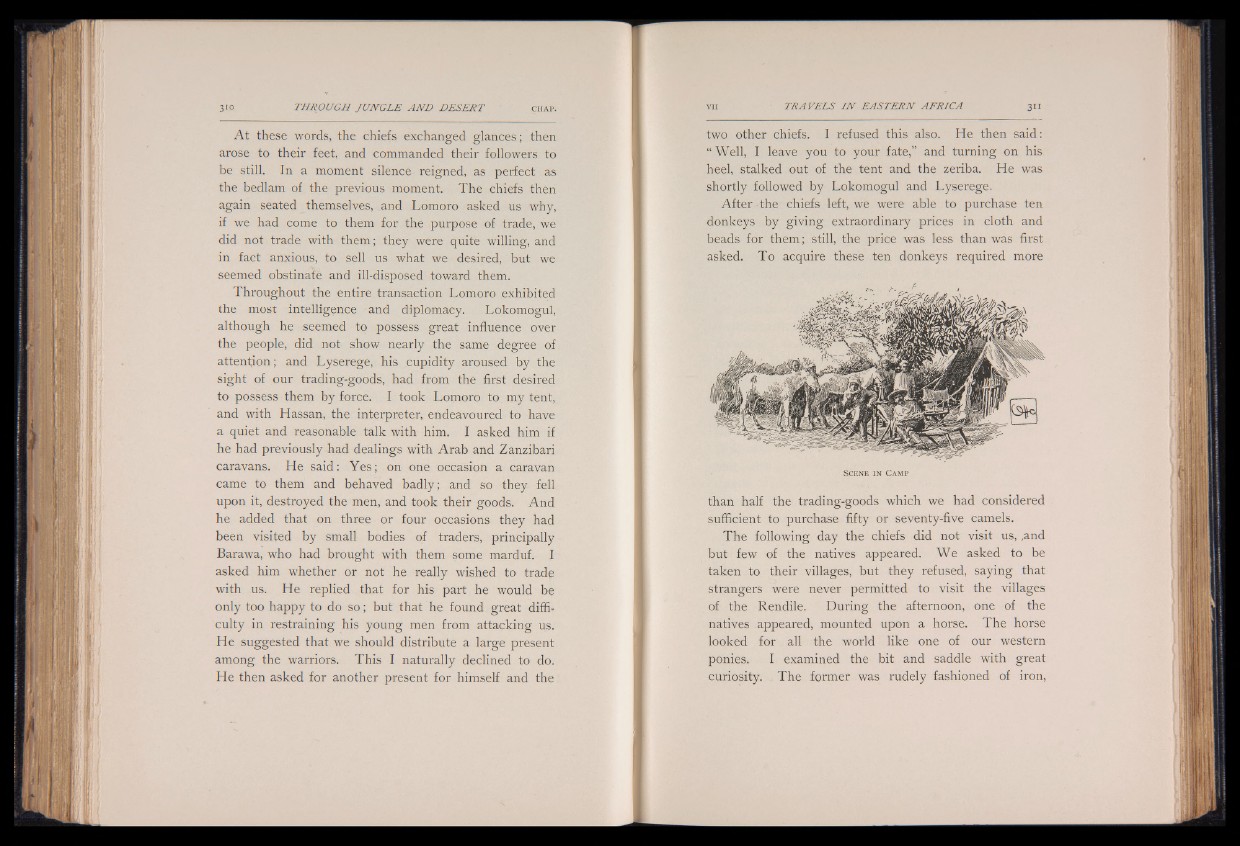
A t these words, the chiefs exchanged glances; then
arose to their feet, and commanded their followers to
be still. In a moment silence reigned, as perfect as
the bedlam of the previous moment. The chiefs then
again seated themselves, and Lomoro asked us why,
if we had come to them for the purpose of trade, we
did not trade with them; they were quite willing, and
in fact anxious, to sell us what we desired, but we
seemed obstinale and ill-disposed toward them.
Throughout the entire transaction Lomoro exhibited
the most intelligence and diplomacy. Lokomogul,
although he seemed to possess great influence over
the people, did not show nearly the same degree of
attention; and Lyserege, his cupidity aroused by the
sight of our trading-goods, had from the first desired
to possess them by force. I took Lomoro to my tent,
and with Hassan, the interpreter, endeavoured to have
a quiet and reasonable talk with him. I asked him if
he had previously had dealings with Arab and Zanzibari
caravans. He said: Yes; on one occasion a caravan
came to them and behaved badly; and so they fell
upon it, destroyed the men, and took their goods. And
he added that on three or four occasions they had
been visited by small bodies of traders, principally
Barawa, who had brought with them some marduf. I
asked him whether or not he really wished to trade
with us. He replied that for his part he would be
only too happy to do so ; but that he found great difficulty
in restraining his young men from attacking us.
He suggested that we should distribute a large present
among the warriors. This I naturally declined to do.
He then asked for another present for himself and the
two other chiefs. I refused this also. He then said:
“ Well, I leave you to your fate,” and turning on his
heel, stalked out of the tent and the zeriba. He was
shortly followed by Lokomogul and Lyserege.
After the chiefs left, we were able to purchase ten
donkeys by giving extraordinary prices in cloth and
beads for them; still, the price was less than was first
asked. To acquire these ten donkeys required more
S c e n e i n C a m p
than half the trading-goods which we had considered
sufficient to purchase fifty or seventy-five camels.
The following day the chiefs did not visit us, ,and
but few of the natives appeared. We asked to be
taken to their villages, but they refused, saying that
strangers were never permitted to visit the villages
of the Rendile. During the afternoon, one of the
natives appeared, mounted upon a horse. The horse
looked for all the world like one of our western
ponies, I examined the bit and saddle with great
curiosity. The former was rudely fashioned of iron,